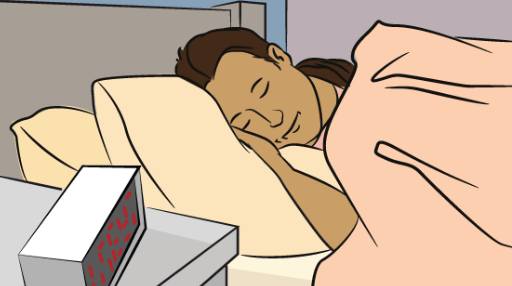How many hours of Sleep: The amount of sleep you require changes throughout your life and depends on the number of sleep cycles needed to feel refreshed.
The significance of sleep extends far beyond what you may perceive. It profoundly impacts various aspects of our well-being, including weight management, metabolism, cognitive function, and emotional state.
Highlights
- For optimal health, adults should aim to get at least seven hours of sleep each night.
- Adequate sleep plays a crucial role in the growth and development of infants, young children, and teenagers. By prioritizing sufficient sleep, we can effectively support their overall well-being and facilitate optimal growth and development.
- Technically, a normal human body needs 9 pointers of Sleep.
While wake-up time remains relatively consistent for many individuals, the time at which one goes to sleep can vary based on a multitude of factors.
- your social life
- your work schedule
- family obligations
- the newest show streaming on Netflix
- the time you start to feel tired

Understanding the ideal time to wake up is valuable, but it’s equally important to know precisely how much sleep your body requires to perform at its peak. This knowledge empowers you to establish a bedtime that aligns with your optimal functioning.
Discover the optimal bedtime by considering your wake time and natural sleep cycles. Gain a deeper understanding of sleep cycles and their impact on your health. Explore the intricate relationship between sleep and well-being.
How many hours of sleep
Getting an adequate amount of sleep is crucial for your overall well-being. Aim for a solid 8 hours of sleep each night to allow your body to recover and alleviate any discomfort. By doing so, you’ll wake up feeling refreshed and ready to tackle the day ahead with confidence and assurance. Optimal sleep hours range from 8:00 pm to 4:00 am or 9:00 pm to 5:00 am, ensuring a full 8-hour rest. Prioritize your sleep to maintain your strength and vitality.
Getting a good night’s sleep and ensuring you complete a solid 8 hours of rest has a multitude of benefits. It not only enhances brain function and boosts the efficiency of your organs, but it also revitalizes your memory. Additionally, it promotes healthy blood pressure levels, ensuring smooth operation throughout your body.
Also Read:
- Top 10 Effective Acupressure Points for Back Pain Relief
- Is Nutella Healthy? Nutrition and Ingredients
It is crucial to recognize that when you have a poor night’s sleep, lacking the required hours, you may experience dizziness and occasional clumsiness, along with impaired memory and significant forgetfulness. Prioritizing your health is paramount, as it is your most valuable asset.
Sleep guidelines by age
- Birth to 3 months: 14 to 17 hours
- 4 to 11 months: 12 to 16 hours
- 1 to 2 years: 11 to 14 hours
- 3 to 5 years: 10 to 13 hours
- 6 to 12 years: 9 to 12 hours
- 13 to 18 years: 8 to 10 hours
- 18 to 64 years: 7 to 9 hours
- 65 years and older: 7 to 8 hours
9 Pointers of Sleep for Normal Human Body
The question at hand is: what are 9-pointers? In this context, “pointers” refer to your sleep schedule, specifically, the time you go to bed and wake up.
In this guide, we will present you with a comprehensive sleep timeline, accompanied by corresponding pointers to help you better understand the different stages of sleep.
| S.No. | Time of Sleep | Pointers/hour |
| 1 | 12 AM-03AM | 2 |
| 2 | 03 AM-06AM | 1 |
| 3 | After 06 AM | 0.5 |
| 4 | After 06AM | 0.25 |
So from here, we can conclude that the better sleep time is from 9 PM to 03 AM where you can attain all 9 pointers of sleep and maintain a healthy body. These hours are the best hours of sleep and you can maintain a better and healthy lifestyle by sleeping this timeline.




